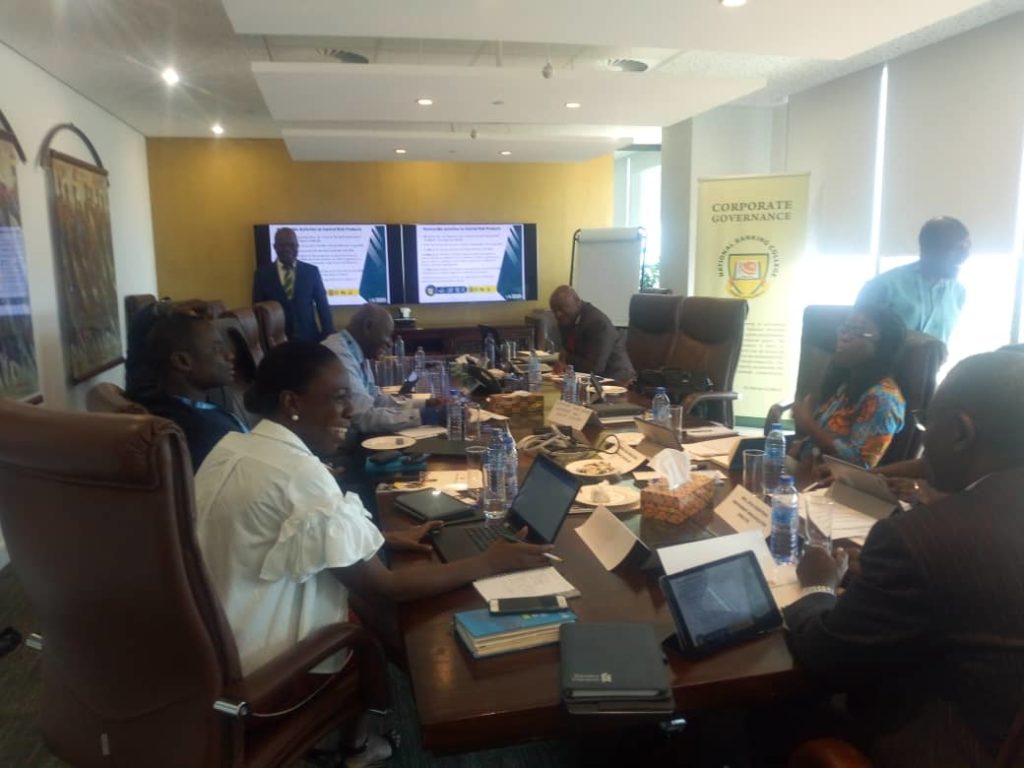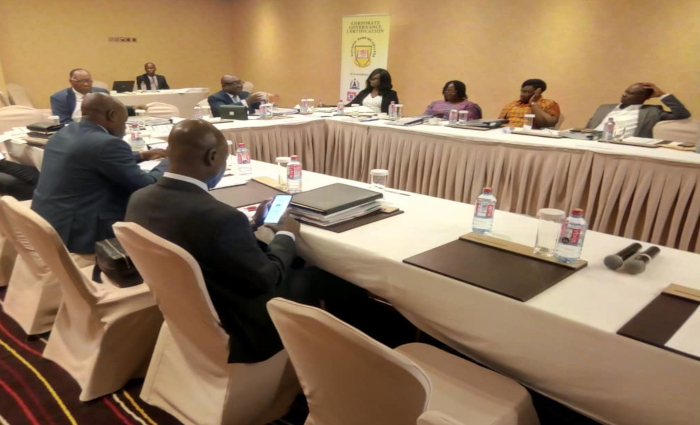Governance Training
The overarching goal of our governance training is Sustainable Banking Practices.
The four identified target groups are Directors, Executive Management, Heads of HR, and Company Secretaries.
The programmes have been designed to address current regulatory compliance issues in the local market. Specifically, the Director Certification program for 2020 is segmented into two module training prgrammes.
Module I will cover ICT Governance and the BoG Cybersecurity directives, and Sustainable Banking: Board’s role in ESG best practices.
Module II will cater for Emerging Basel regulations in prudential reporting, and Corporate reporting and disclosures.
2021 Governance Certification will help directors understand:
• the regulator’s expectations regarding adequacy of transparency in corporate reporting of disclosures.
• appreciate the synergies between financial performance and protection of the global ecosystem.
• the significance of ICT governance on business sustainability, and
• the indicators of a healthy, stable, and sound bank.
We will adopt a four-fold adult learning approach, providing participants with pre-training programmes assignments, and reading materials. Participants will be guided on how to write reflective journals during the workshops. The two-module Director certification program, to run for two days will have a duration of about 10 hours.


The table below gives the background, rationale, and training objectives for the identified target groups.
The Fit and Proper Person (F.P.P) directive requires new reporting procedures for the appointment of key management staff, their continuous performance review, and fit and proper assessments for all middle and lower level staff in the banks. The Corporate governance directive encourages banks to have rigorous selection processes, develop staff to deliver on business objectives to meet the standards of good business conduct. There is the need for Heads of HR/HRBPs to be knowledgeable in the BoG reporting standards on FPP assessments, code of business conduct, HR risk governance, and talent management practices.
Training objective: Understanding HR risk and governance standards, compliant with the regulator’s standards.
The Bank of Ghana, between 2015 and 2017 revoked the licenses of banks heavily deficient in capital and liquidity, and to address the regulatory shortcomings in the soundness and stability of banks released six directives which require full compliance by both Boards and Management.
There is the need for Executive Management to remain compliant with these directives, understand enterprise-wide risk management and measures, embed a culture of accountability and transparency in all business operations and be conversant with IT governance issues.
The changing regulatory landscape in the banking institutions has broadened responsibilities and expectations required by the company secretary. There are several challenges to which the company secretary must demonstrate a depth of understanding in the corporate governance to influence board decision positively.
There is the need for the company secretaries to broaden technical knowledge in banking and finance, develop skills in emotional and cultural intelligence, manage boardroom dynamics effectively and remain relevant in corporate governance function.
The recent banking crisis due partly to the lack of transparency in the financial and non-financial disclosures and inadequate and ineffective governance practices, banks are required to disclose relevant and useful information annually to lower investor uncertainty and regain confidence in the banking sector.
The Bank of Ghana with the support from the IFC, released the sustainability banking principles and guidelines to reduce vulnerability of banks from risks arising from the environment. Banks are to mitigate environmental risk,
inculcate environmental consciousness into business transactions and incorporate environmental and social factors into governance decisions.The digitalised revolution has resulted in increase in cybercrime; in 2017 Bank of Ghana fraud report found that 70% of total fraud reported in Ghana were technology-related. This is because the technology risk management and governance function in banks has struggled to keep pace with the technological advancement.
There is the need to deepen Director’s understanding on the new regulations and the Basel Committee measurers for sound and stable banking, enlighten them in ICT governance and compliance oversight issues, and help them appreciate the regulator’s expectations regarding adequacy of transparency required for corporate disclosure.


